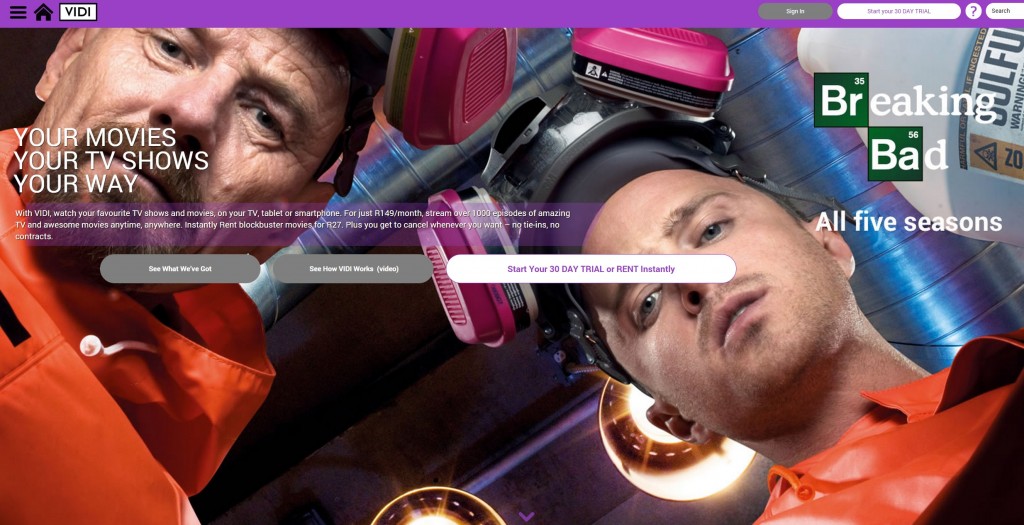Last week’s launch of online video-on-demand (VOD) service Vidi by Times Media Group (TMG) has finally opened up competition in South Africa’s pay-TV market, long dominated by Multichoice’s DSTV service.
And global advisory services firm International Data Corporation (IDC) believes that Vidi has first-mover advantage in the online VOD space and could cause significant disruption to the country’s pay-TV subscription market in the near future.
 With other players, including telecom operators, also planning to launch VOD services, Vidi’s first-mover advantage will not last long.
With other players, including telecom operators, also planning to launch VOD services, Vidi’s first-mover advantage will not last long.
For example, while Telkom withdrew its RFP for VOD services in February 2014, it promised to issue a new RFP that is properly aligned with the company’s new strategy. And a number of other operators are also believed to be in discussions with content providers to offer similar services.
“The biggest threat in the short term to Vidi is expected to come from Telkom if it launches its own VOD services by leveraging its ADSL infrastructure,” says George Kalebaila, senior research manager for telecommunications and digital media at IDC Africa.
“Telkom can offer VOD as a bundled service to its ADSL customers as a triple- or quad-play offering, and position itself as the preferred connected home communication provider to its subscribers.”
DSTV currently offers online VOD to DSTV premium subscribers on multiple devices, but the DSTV premium subscription of ZAR 665 per month is considered to be too expensive by many South Africans. It will be interesting to see if DSTV will move to protect the online VOD segment by opening the service to all its subscribers.
Vidi’s ZAR 149 per month subscription also compares favorably to Netflix’s $7.99 per month plus ZAR 50 for a VPN connection to the U.S. (Netflix and Hulu are not currently offered locally in South Africa, so subscribers require a VPN connection to access their content).
In addition, Vidi’s quality of streaming is expected to be better than the international alternatives since Vidi has a local content distribution network (which act as content accelerators) in Johannesburg, Pretoria, and Cape Town.
“IDC believes the major impediment to mass adoption of online VOD services in South Africa is the cost of data connectivity, particularly for mobile broadband,” says Kalebaila.
“The advantage of accessing digital content from anywhere on multiple devices will be lost if the cost of data connectivity remains high. With low fixed broadband penetration in the country, the online VOD proposition on mobile broadband is where the numbers are going to come from owing to the large mobile subscriber base.
“Mass rollout of FTTx offerings are still a long way away, and therefore mobile broadband is the only attractive alternative for mass adoption of online VOD in South Africa. The anticipated freeing up of the digital dividend spectrum by ICASA post 2015 is expected to speed up LTE rollout and drive the cost of data downwards. Finally, IDC believes that online VOD will only significantly disrupt the pay TV market once the cost of data connectivity falls to affordable levels for the mass market.”

